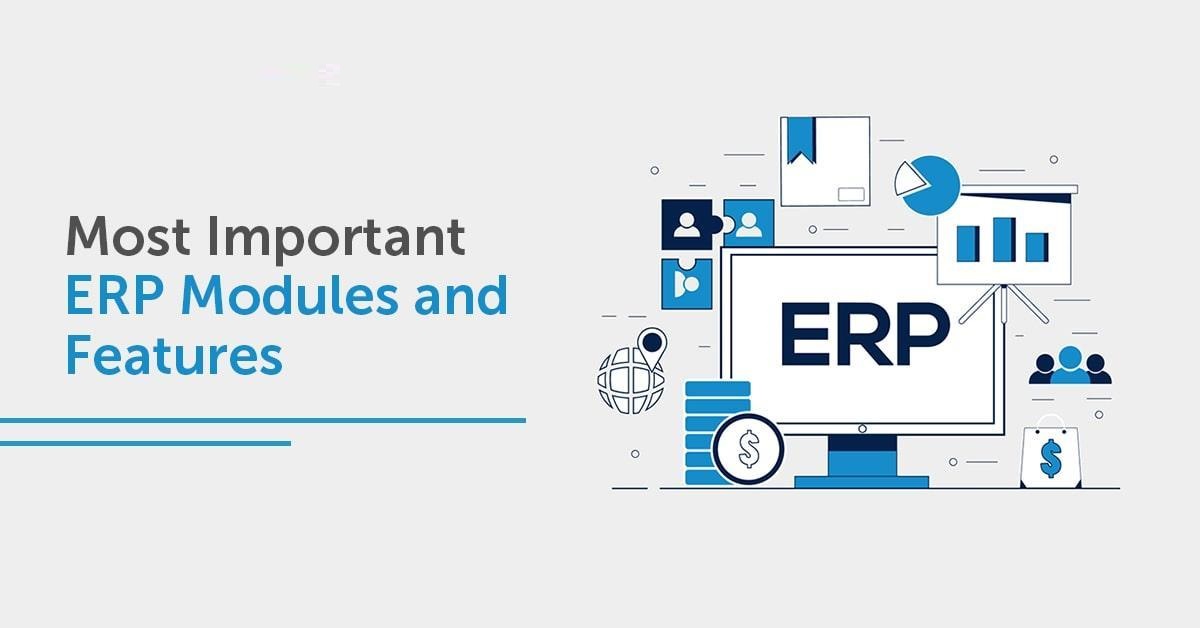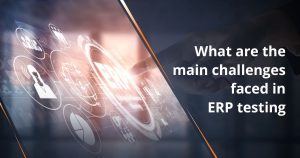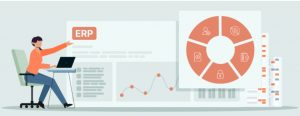ERP Business Module – As companies grow in size and complexity it becomes more and more difficult to have a wholistic overview of business operations. Making good decisions, managing resources effectively, and preventing a silo mentality from developing in individual departments, becomes more of a challenge.
Complexity can become a hinderance, because it directly affects an organisation’s ability to perform at its peak within an increasingly competitive business environment, and so finding ways to improve efficiency and decision making across all areas of operations becomes an ongoing focus.
This is where an Enterprise Resource Planning (ERP) system and its individual modules, come into play and where the services of specialist companies like Connected IT Consulting, Ireland, become so valuable.
WHAT IS AN ENTERPRISE RESOURCE MANAGEMENT (ERP) SYSTEM?
Before describing an ERP module, we’ll start by briefly clarifying the meaning of an ERP system.
An ERP system is a software programme that automates critical business processes within an organisation and that gathers information into a central database. This includes financial and operational information from across various departments within the organisation.
The result of the process is that information become centralised and gives management a live, accurate and wholistic overview of company operations. Being automated, the process allows for more accuracy and consistency of data, together with a high-quality level of reporting.
The overarching benefit of all of this, is the ability of senior management to make better decisions, which in turn leads to greater efficiencies, better allocation of resources and additional cost savings.
SO, WHAT IS AN ERP MODULE?
An ERP software system is made up of a collective of modules, each of which is designed for a specific function within the organisation. Each individual module supports the functions of a different department, that has been identified as being critical to the operations of the company.
The modules provide important data and support the processes of the relevant department, helping to improve employee efficiency and decision-making ability. The individual modules are integrated into the overall ERP system of the organisation, which in turn provides a single source of data and information.
CAN NEW ERP BUSINESS MODULE BE ADDED TO THE SYSTEM?
Usually, when companies first venture into the world of ERP, they invest in introducing only those modules that are relevant to the existing business model and whatever challenges exist at the time. A common first introduction for instance, is that of finance and accounting. But, as it grows and the needs of a company change, new modules can be added. These new modules can be seamlessly integrated into the existing ERP software system. The great thing about ERP is that, once an effective ERP system is in place, there is no need to reinvest in a new system when adding new modules.
There is one caveat however, in that success starts with the introduction and implementation of the correct ERP system. If starting off from scratch, not all new ERP systems are the perfect match for an organisation. And if upgrading an existing system, not all are able to integrate effectively with what is already in place. Making mistakes can have huge implications for an organisation in terms of money, operational efficiency, and employee motivation.
The trick lies in using the services of a professional and experienced ERP supplier like Connected IT Consulting, Ireland, who work closely with clients to identify the correct software programmes, and to ensure successful implementation and ongoing management of the new system along the way.
WHAT DIFFERENT KINDS OF ERP BUSINESS MODULE ARE THERE?
When it comes to considering the introduction of a new module to an existing ERP system, there are endless choices available. The following five are only a few examples of the more common types of ERP modules used in organisations, but these help to demonstrate the possibilities:
ERP Finance Modules
Having the ability to understanding the current financial situation is obviously the most critical aspect of any business and this is most often where companies start.
Financial modules provide critical reports on key financial and accounting aspects, including focus areas like debtors and creditors, vendor payments, ageing analysis and cashflow management to name only a few. These modules automate reporting that would otherwise take up an inordinate amount of time if done manually.
Important data and reports relevant to all levels of the business can be retrieved for instantaneous decisions relating to budget and financial overviews by department and the company as a whole.
ERP Manufacturing Modules
When it comes to making any business more efficient, manufacturing is a primary area of focus and usually one of the first modules to be introduced as a company expands.
ERP Business Module assist companies to better plan their manufacturing, by helping to synchronise raw materials with planned production runs and ensure that output effectively matches input. The system can provide live updates on how the factory floor is performing against forecast and highlight areas where efficiency of production can be improved.
ERP Inventory Management Modules
By integrating with procurement modules, the inventory management module offers a complete picture of current stock levels versus incoming inventory. Inventory can even be tracked by individual SKU.
Cashflow is maximised through the ability to properly manage supply and demand, by tracking daily stock levels against sales projections and forecasts. This in turn improves customer service levels and makes for better relationships with both customers and suppliers alike.
ERP Customer Relationship Management (CRM) Modules
Building personal relationships is the name of the game in marketing today. CRM modules give organsations the ability to create more meaningful and rewarding customer relationships.
The CRM system is able to store detailed customer and prospect information, including that related to communication and even purchase history. It also aids in identifying the correct target audience for promotions, special offers and the like.
When used correctly, the CRM module will provide the salesforce with clearly targeted and more effective sales leads to be followed up on.
Human Resources Management
The module simplifies the task of HR, because of its ability to store intricate detail of each individual employee, such as personal details, salary and adjustments, job descriptions, performance reviews and the like.
On a more macro level, HR managers have a full overview of employee numbers and functions by individual region across the country, as well as hours worked, overtime earned, and number of days leave outstanding. This in turn allows for better staffing decisions and more effective allocation of workers.
CONCLUSION
ERP is a given in the modern world of business, where consumers demand not only a more personal relationship with organisations and brands, but also instant gratification and a high-quality experience.
ERP allows companies to become efficient enough to meet these demands, by providing high quality reports, better decision making and more efficient use of company resources.
Connected IT Consulting, are Irelands leading ERP software development and design company, with a 100% success rate amongst clients. They work closely with companies of all sizes, to thoroughly analyse the business environment, identify the correct fit, implement the ERP system, and integrate it seamlessly into organisation.
Related Links
ERP Project Management
Business Process mapping
Small Business ERP
ERP Consulting



